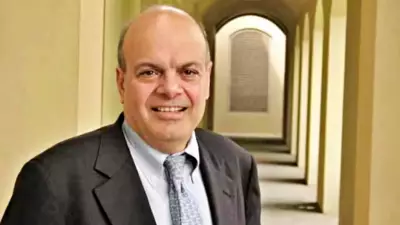
End of an Era: Warren Buffett Goes Quiet
The investment world witnessed a historic transition as Warren Buffett, famously known as the Oracle of Omaha, has officially stepped back from his active role at Berkshire Hathaway. The legendary investor, aged 94, will no longer write the company's annual reports or speak at its annual meetings - traditions that defined his leadership for several decades.
Buffett's phenomenal success and unparalleled track record made his shareholder letters and annual meetings global events that investors worldwide followed religiously. Alongside his longtime friend Charlie Munger, Buffett would hold forth on everything from company performance to market trends and economic outlooks, creating what many considered the ultimate masterclass in investment wisdom.
The Buffett Legacy: Investment Philosophy and Massive Wealth
Buffett's investment approach was significantly influenced by Ben Graham, widely regarded as the father of value investing. A staunch advocate of the buy-and-hold strategy, Buffett maintained substantial stakes in companies like Coca-Cola and American Express for decades. More recently, he built a significant position in global tech giant Apple, demonstrating his ability to adapt while maintaining core principles.
In today's fast-paced investment environment dominated by quarterly results, Buffett remained committed to his timeless philosophy: start investing early, stay invested for the long term, and let compounding work its magic. This approach proved spectacularly successful - when he turned 56 in 1986, his net worth reached $1 billion. Nearly four decades later, his wealth stands at approximately $150 billion.
The Abel Challenge: Managing the Berkshire Empire
As Greg Abel prepares to take over as CEO, he faces immediate and substantial challenges. Berkshire Hathaway currently holds cash reserves exceeding $350 billion, presenting both an enormous opportunity and significant pressure. Abel must deploy this massive war chest carefully and tactically while ensuring the company's risk-reward profile remains consistent with Buffett's established principles.
Buffett has never hesitated to voice strong opinions, once famously comparing derivatives to weapons of mass destruction - a view that gained widespread recognition during the 2008 financial crisis. His methods for gauging market cycles, such as the total stock market capitalization to GDP ratio, have become essential tools for investors worldwide.
The transition comes at a time when Berkshire's returns have occasionally trailed benchmark indices, though shareholders have traditionally shown patience with Buffett. Whether they extend the same confidence to Abel remains uncertain. The new CEO must not only manage the company's vast portfolio but also earn the trust that Buffett built over his extraordinary career.





